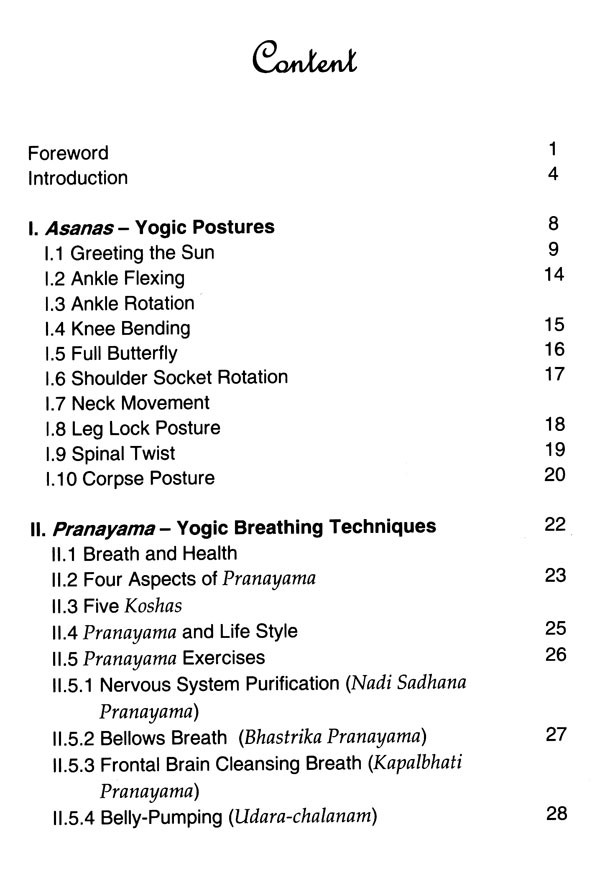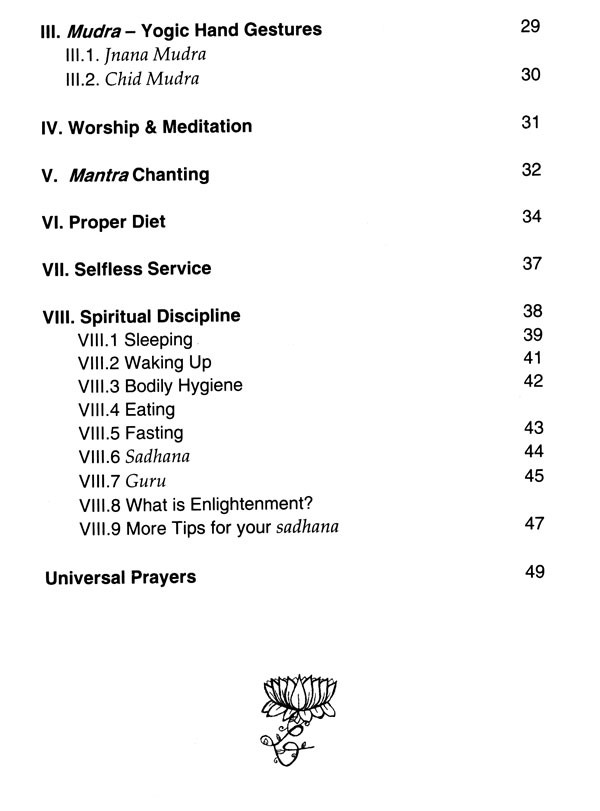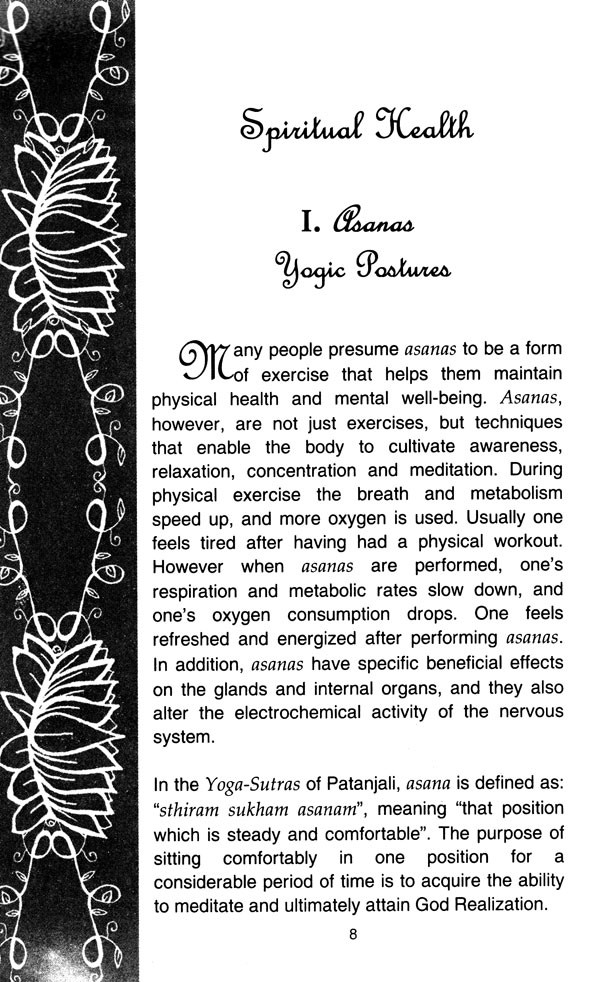
Spiritual Health
Book Specification
| Item Code: | NBZ726 |
| Author: | Satya Narayana Dasa and Gerda Staes |
| Publisher: | Jiva Institute, Vrindavan |
| Language: | English |
| Edition: | 2007 |
| ISBN: | 9788187153870 |
| Pages: | 62 (Throughout B/W Illustrations) |
| Cover: | PAPERBACK |
| Other Details | 8.50 X 5.50 inch |
| Weight | 100 gm |
Book Description
The human form of life is very special, rare and precious. Above all else, humans have exceptionally developed powers of intellect and speech. These unique, highly advanced capabilities differentiate humans from all other species.
According to the Vedic scriptures, these advanced capabilities endow human life with a distinctive, special purpose: the attainment of permanent happiness that is free of misery. Aristotle called this special purpose the "summum bonum", the highest good. While we desire other 'goods', such as money or power, because we believe they will make us happy, we want happiness for its own sake. At heart, we want happiness that arises without becoming dependent upon or bound to a lifeless physical object. We want happiness with a sense of freedom.
The human form of life is very special, rare and precious. Above all else, humans have exceptionally developed powers of intellect and speech. These unique, highly advanced capabilities differentiate humans from all other species.
According to the Vedic scriptures, these advanced capabilities endow human life with a distinctive, special purpose: the attainment of permanent happiness that is free of misery. Aristotle called this special purpose the “summum bonum"—the highest good. While we desire other 'goods', such as money or power, because we believe they will make us happy, we want happiness for its own sake. At heart, we want happiness that arises without becoming dependent upon or bound to a lifeless physical object. We want happiness with a sense of freedom.
All humans are created in such a way that, consciously or unconsciously, we seek happiness, but at the same time all of us face series of problems in life that obstruct our attainment of happiness. The Vedic scriptures prescribe certain disciplines that allow us to permanently solve these problems. Self-discipline is beneficial and conducive to health, and without it life becomes animalistic—“Dharmena hina pasubhih samanah”.
There are various types of practices prescribed in the scriptures for attaining the ultimate goal, i.e. perpetual happiness untainted by any misery. Among them the path of devotion is the most recommended, practical and beneficial process. It is seen that all major religions of the world, such as Christianity, Islam and Hinduism, have laid stress on devotion to God. Pure devotion (bhakti yoga), which is love for God, is the universally prescribed means for ultimate happiness. Bhakti-yoga, the path of devotional service, is the direct path for God Realization. This is the ultimate conclusion of Bhagavad-Gita. In Gita, Krishna spoke on various processes of advancement, such as karma-yoga, sankhya-yoga, astanga-yoga and bhakti-yoga, but He stressed the superiority of bhakti-yoga over the other paths.
Emotion is a very strong factor in our lives. Suppose your business is going well, you are faring well in your office, everything is running fine, but some emotional issue comes up at home. You feel dejected and disturbed. Having an unhappy heart is like being physically sick-one cannot enjoy even the best circumstances in life. On the other hand, suppose your business is not going great or you are not doing well in your job, but when you leave work and come home, your homelife is emotionally fulfilling. You remain enthusiastic and joyful. This shows that emotion is a dominant factor in our life. Bhakti-yoga is the path that involves our emotions. It is the path of love.
**Contents and Sample Pages**











